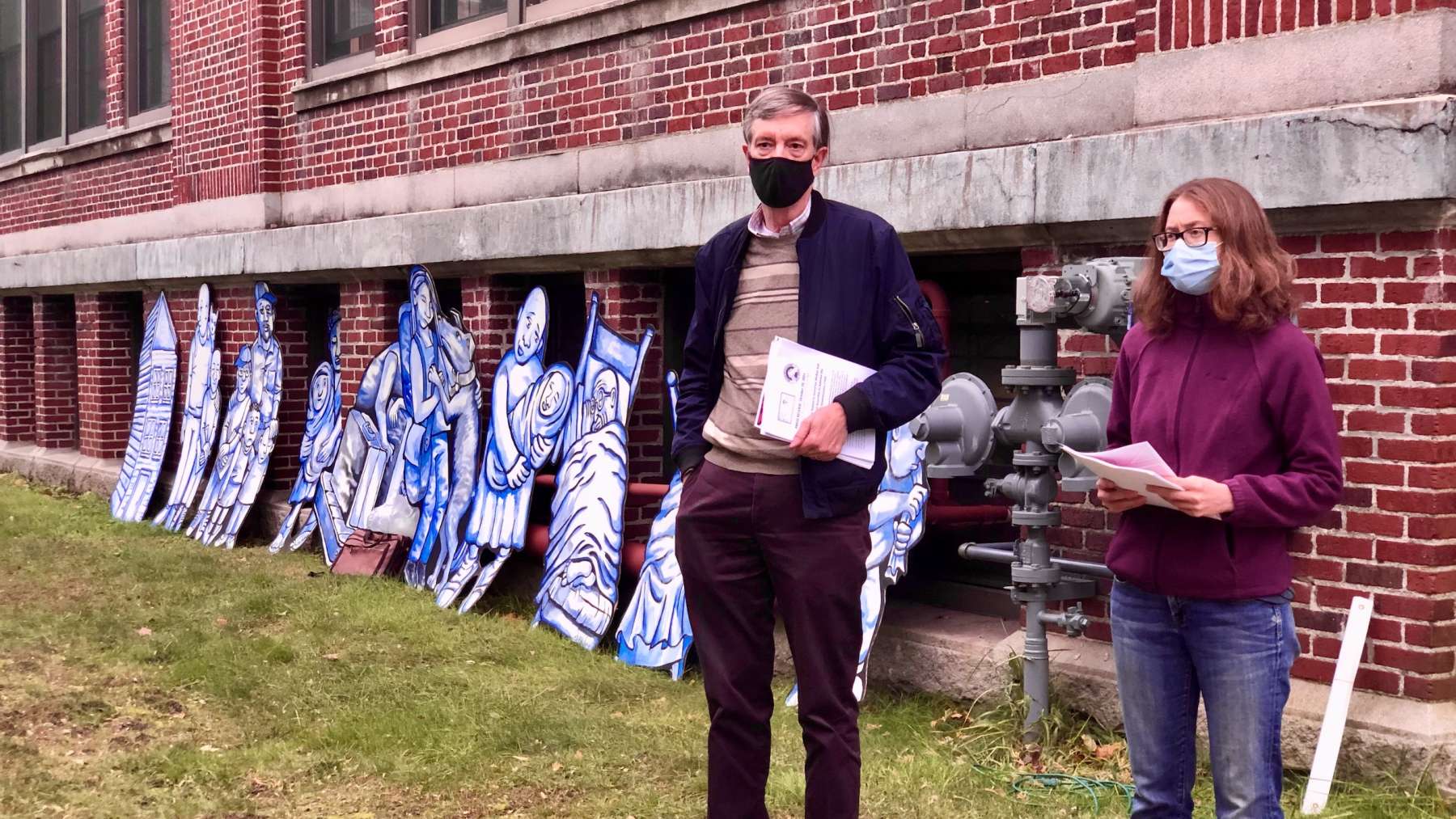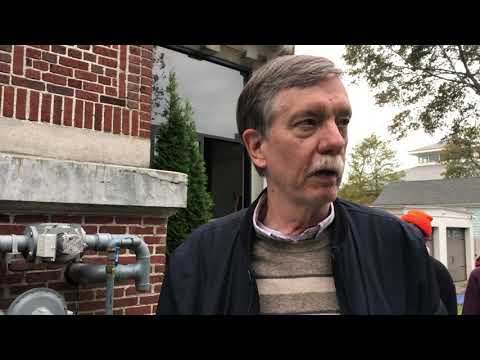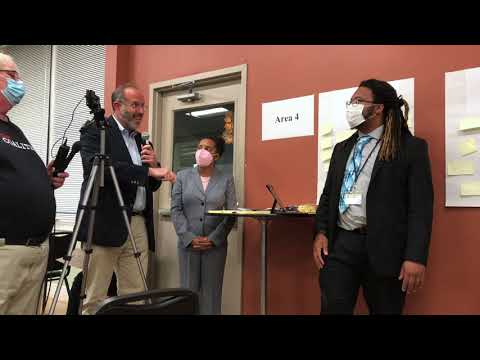Governor McKee confronted by activists on his failure to act on homelessness crisis
“In regards to unsheltered homelessness, why isn’t the Governor declaring a state of emergency?” asked Barbara Freitas, who heads the Rhode Island Homeless Advocacy Project. “[Massachusetts Governor] Charlie Baker just did it. We have over 600 people living in places not meant for human habitation. That means they’r living in abandoned buildings. That means they’re living in tents in the woods. They’re living in doorways, and we’re including children. Families. Individuals with mental problems, with substance abuse issues.”
October 28, 2021, 8:59 pm
By Steve Ahlquist

Activists from the Rhode Island Homeless Advocacy Project and the Rhode Island Homeless Bill of Rights Defense Committee attended Governor Daniel McKee’s community meeting at Hope & Main, a business incubator in Warren, which was organized to get feedback on how to spend federal American Rescue Plan Act funds.
“These funds are intended to assist the state in responding to the impact of the COVID-19 pandemic. However, Rhode Island is one of the very few states that has yet to spend any of these funds,” write activists in a statement. “This is unconscionable given the current crisis of unsheltered homelessness in our state. The number of people living outside has skyrocketed due to the COVID-19 pandemic, which forced a density reduction in homeless shelters and which has meant that many households have lost their homes because they cannot make their rent or mortgage payment.”
According to the state’s Homeless Management Information System, 575 individuals have lived in a “place not meant for human habitation” over the last 30 days. This is more than a fivefold increase from before the pandemic and means that an unprecedented number of people are staying on the streets, in tents, in vehicles, etc. Emergency shelter is no solution because there are 1,075 individuals on waiting lists for individual and family shelters; this number includes 162 family households with 505 parents and children.

Uprise RI spoke to Professor Eric Hirsch of Providence College.
“I have been Chair of the Homeless Management Information System Steering Committee since the system was created in 2003,” said Professor Hirsch. “We are now seeing four to five times the number of people living unsheltered as we have ever seen in the state’s history. The numbers are unprecedented! The state must act to address this crisis now. Living outside in New England in the winter is life-threatening.”
Barbara Freitas, who heads the Rhode Island Homeless Advocacy Project, implored Governor McKee, Lieutenant Governor Sabina Matos and Commerce Secretary Stefan Pryor to finally do something real to address the growing homelessness crisis. Governor McKee had already left the event by the time Frietas took the microphone.
“In regards to unsheltered homelessness, why isn’t the Governor declaring a state of emergency?” asked Frietas. “[Massachusetts Governor] Charlie Baker just did it. We have over 600 people living in places not meant for human habitation. That means they’r living in abandoned buildings. That means they’re living in tents in the woods. They’re living in doorways, and we’re including children. Families. Individuals with mental problems, with substance abuse issues.
“I want to ask the Governor,” continued Freitas, “What are you going to tell me to say to them tonight, because the 2030 plan is terrific for nine years later, but what about tonight? Where are we going to tell people to go because we got all these people on the street? Because the shelters are full. We’ve got a line a mile long for people to get into shelter.”
Activists assert that state government has not adequately addressed this urgent crisis. They write:
“The Governor’s office and the General Assembly must show leadership and intervene now to find solutions. Non-profits cannot do this alone. The Governor and General Assembly must:
- Declare a state of emergency and immediately mobilize a taskforce that includes key government officials to ensure that those not housed as winter approaches have safe indoor accommodations (hotel rooms, shelter beds, tiny homes, etc.). The taskforce must also find creative ways to rapidly add 500 new housing units with supportive services to house as many of those living outside as possible.
- Fully fund and find a site for the House of Hope sponsored tiny home ECHO Village to provide alternative safe shelter.
- Increase funding for efforts to rapidly divert those eligible to housed alternatives before they enter the shelter system or are forced outside.
As the meeting continued inside Hope & Main, State Police kept about a dozen young people from entering the presentation due to fire safety codes:


Artwork was provided by Space Transformation Station:











